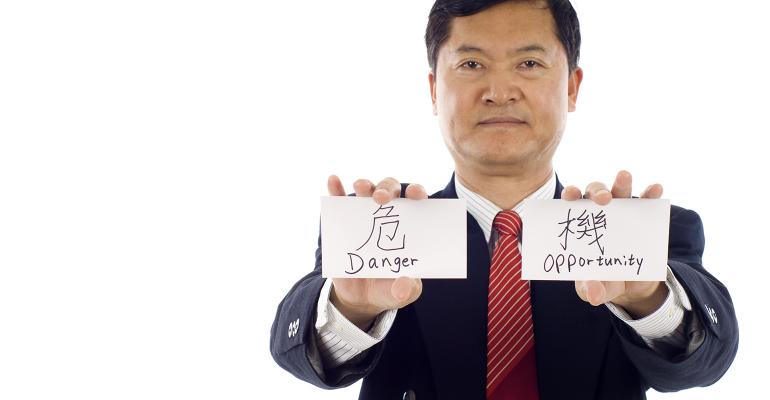How motivated are you today? Where do your 2020 goals rank in your priorities? Have your goals changed? How motivated are your team members? These are tough questions to answer when our lives have been turned upside down by COVID-19.
I don’t know about you, but I’d wager your primary goal is like mine, the health of you and your family. As a result, we’re following the advice of the experts: maintaining social distance, working from home, venturing out of our home only for essentials and so on. And most likely, business goals have changed.
The Chinese symbol for crisis (often quoted but technically questioned) has two parts: danger and opportunity. This pandemic has us all aware of the danger, maybe too aware, but not so much the opportunities. As a financial advisor, herein lies your opportunity: become motivated to recognize opportunities of today and tomorrow.
A recent online HBR article (April 9, 2020), “How to Keep Your Team Motivated, Remotely” by Lindsay McGregor and Neel Doshi, got my attention. My first thought was about team leaders. Leaders must stay motivated! That said, the authors researched over 9,000 U.S. workers and discovered that motivation dropped 17 points working from home. In other words, if one were to make a general assumption, the typical financial advisor is at least 20% off their game. Ouch!
So what is a financial advisor to do? First and foremost—commit to developing and maintaining a Leadership Mindset—calm, confident and knowledgeable. This will allow you to have a concise narrative for team members and clients that is clear and reality-based with an optimistic belief that we’ll get through this and be better for it.
Taking a few liberties with McGregor and Doshi’s work (which is terrific), I’m adapting it for financial advisors, but before diving into motivation, it’s time to reset your goals. Most elite advisors have a simple reset: client retention, client acquisition, new assets from existing clients and COI referrals.
Once these goals are firmly reset, you’re ready to focus on what the authors refer to as TOMO (total motivation) for each member of your team. They cite three positive motivators: play, purpose and potential, which, when activated, serve as the antidote to emotional pressure (health), economic pressure (job security) and inertia (paralyzed by fear).
I don’t quite understand how play represents making work engaging, empowering employees (team members) to solve problems—but the result is brilliant. Increase team member involvement: Ask for opinions, assign problems to be solved, make them partners in the new normal.
In the spirit of simplicity, I’m going to use one question that is modified for each of the reset goals previously mentioned. Obviously, you can create your own goals and your own strategy for increasing engagement.
Client Retention: Some clients are panicked about the market, others are worried about their children being out of school, others are worried about their jobs, and everyone is trying to stay healthy. So here’s a problem that you can ask your team, support personnel in particular, to help solve …
Engagement Question: How can we improve our client service: communication, contact, kindness, value beyond expectation, etc.?
Client Acquisition: Elite advisors bring in more new clients during challenging times than they do in good times. How? Basically, by staying close to their existing clients, empowering their team to provide value beyond expectations, which serves to activate word-of-mouth-influence, and then it’s game on.
Engagement Question: How can we take advantage of all our client retention efforts to acquire new clients?
New Assets: Financial advisors often assume they have all their clients’ assets, but that’s not always the case. Elite advisors excel in consolidating assets in times of crisis.
Engagement Question: How, when talking with clients, can we prompt them to consolidate outside assets with us?
COI Referrals: CPAs, attorneys and other professionals affluent clients use have all had their professional and personal lives turned upside down by this pandemic. And they have panicked clients who aren’t being served well by their current financial advisor. So the problem/question opportunity is …
Engagement Question: How do we reach out to these COIs in a way that positions us as “top-of-mind” for referrals?
As you engage your entire team in addressing potential opportunities as you see them in your world, not only are they more engaged, they’re less likely to be worried about their jobs (economic pressures), and have a renewed purpose that both motivates and takes their mind off, at least temporarily, obsessive health worries.
So stay motivated, keep your team motivated and go after those opportunities.
Matt Oechsli is author of How to Build a 21st Century Financial Practice: Attracting, Servicing, and Retaining Affluent Clients. www.oechsli.com





